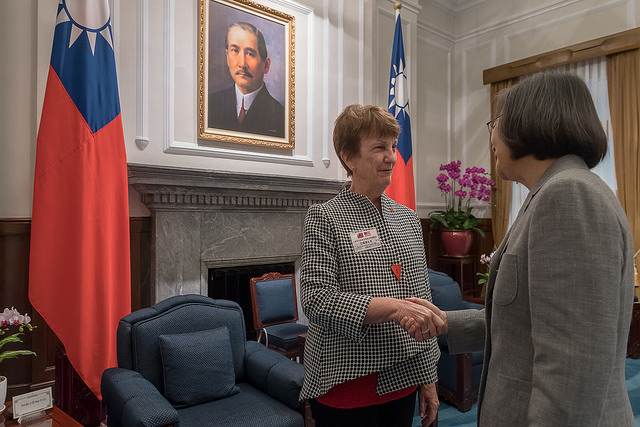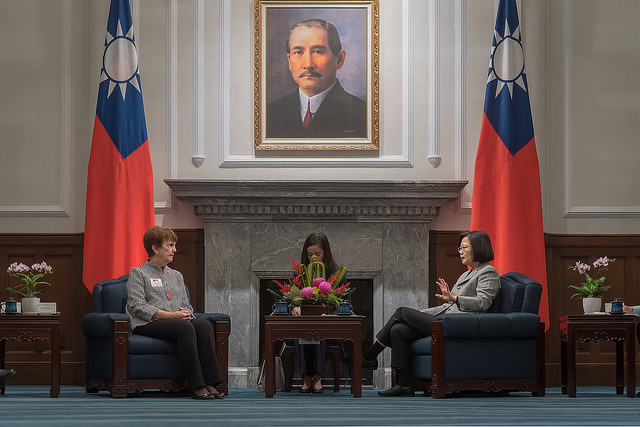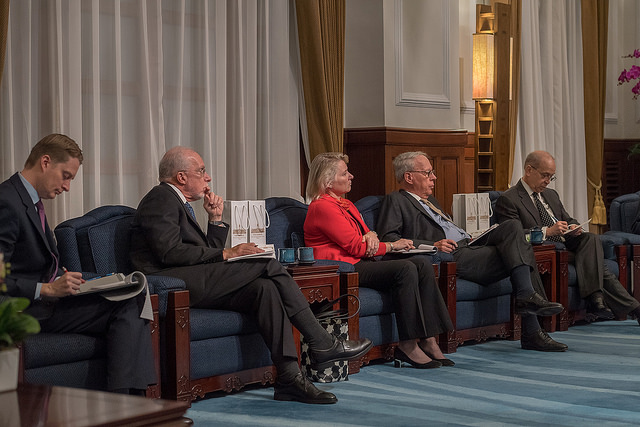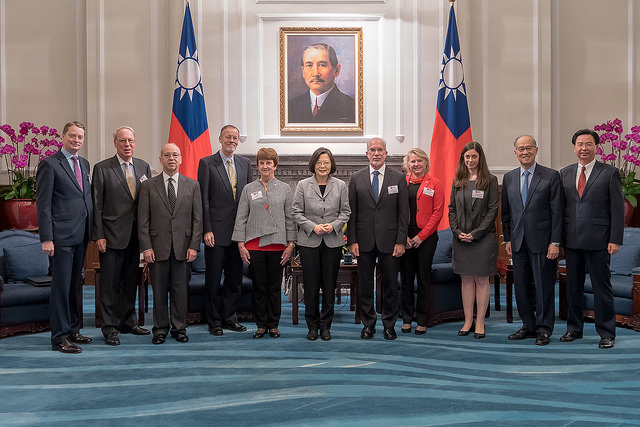News & activities
 News releases
News releases
On the morning of November 30, President Tsai Ing-wen met with a delegation from the National Committee on American Foreign Policy (NCAFP). She stated that Taiwan will uphold the values and beliefs of freedom and democracy, and continue to work together with like-minded countries to safeguard democracy and freedom. She also expressed hope that Taiwan and the United States will continue to work closely with each other, and expand mutually beneficial bilateral cooperation.
President Tsai began her remarks by congratulating Ambassador Susan Elliott on assuming the position of President and CEO of the National Committee on American Foreign Policy in August of this year. President Tsai noted that Ambassador Elliott is a seasoned diplomat who has served in Russia, the European Union, and Latin America. She was delighted to welcome the ambassador on her first visit, leading such an important delegation to Taiwan.
The president said that she was happy to see the delegation members, because she had previously interacted with them in many different settings, both as Democratic Progressive Party (DPP) Chairperson and as President. She also benefitted a great deal from previous discussions with them regarding international affairs and regional relations.
President Tsai pointed out that the delegation arrived right after the conclusion of local elections, and she was sure they would hear many thoughts about the "9 in 1" elections while in Taiwan. She said the election results reflected people's dissatisfaction with domestic politics and reforms. Following the elections, we conducted serious reviews in the hopes of bringing about improvements to gain more support from the people for reform progress and national infrastructure projects.
The president pointed out that we faced many challenges in these elections, especially the impact of the spread of disinformation over the Internet, a phenomenon exacerbated by the influence of external forces. President Tsai said this is a challenge that faces all democratic societies that advocate open society and freedom of speech, and she hopes to have the opportunity to face this issue together with other democratic countries in the future.
The president said that we must humbly reflect on the people's dissatisfaction expressed through the election results. However, we do not believe that these elections reflected people's choices or major changes regarding cross-strait policy. We will therefore continue our policy of maintaining the status quo.
The president pointed out that many people were concerned about cross-strait exchanges following the elections, especially at the city-level. We have always maintained a positive and open attitude towards city-level exchanges with China, and we will continue to welcome more exchanges. However, we hope that these city-level exchanges are not subject to political preconditions, so that these preconditions do not interfere with exchanges.
The president stated that although the results of the elections were disappointing for the DPP, democratic elections are Taiwan's greatest asset, and also what sets it apart most from China. She said that although the election results reflected many issues, Taiwan will continue to uphold the values of freedom and democracy together with like-minded countries.
In closing, the president emphasized that the United States is Taiwan's most important strategic and economic partner, and that next year marks the 40th anniversary of the Taiwan Relations Act. She then expressed hope that the two countries will continue to work closely with each other and expand mutually beneficial bilateral cooperation.












